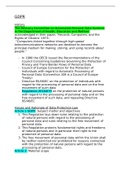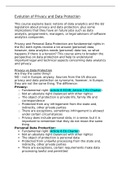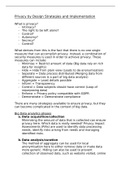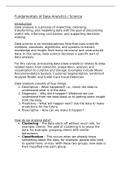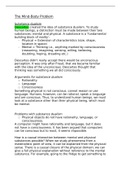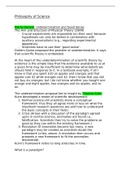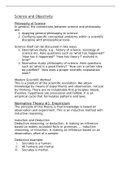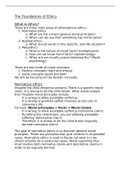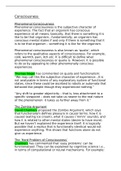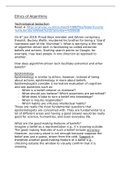Vrije Universiteit Amsterdam (VU) • Minor Technology, Law and Ethics
Meest recente samenvattingen voor de opleiding Minor Technology, Law and Ethics op de Vrije Universiteit Amsterdam (VU). Op zoek naar een samenvatting voor Minor Technology, Law and Ethics? Wij hebben diverse samenvattingen voor de opleiding Minor Technology, Law and Ethics op de Vrije Universiteit Amsterdam (VU).
-
28
- 0
-
4
Vakken Minor Technology, Law and Ethics op de Vrije Universiteit Amsterdam (VU)
Er zijn samenvattingen beschikbaar voor de volgende vakken van Minor Technology, Law and Ethics op Vrije Universiteit Amsterdam (VU)
Nieuwste samenvattingen Vrije Universiteit Amsterdam (VU) • Minor Technology, Law and Ethics
Detailed notes about the GDPR. Explanation of fundamental principles and rules for processing data. What is the GDPR for? What are the specific sections of the GDPR? What are the values and rationale of data protection laws?
What is privacy? What is data protection? Are they the same thing? What are the legal sources of privacy rights and data protection? What is the difference between the private and public sphere? Who should afford privacy rights and when? Detailed discussion on the issues surrounding privacy and data protection, plus case recommendations.
Detailed notes on privacy by design strategies and implementation. What is privacy? How can security measures be used to achieve privacy? What are rights to privacy? How is privacy ensured in big data?
Introduction to data analytics and science. How do we analyse data? What are data science projects? What is big data? What are the problems of big data?
Detailed notes on the discussion regarding the mind and body. Critically evaluates substance dualism, behaviourism, identity theory, functionalism, computationalism and cognition.
Considers the undetermination proposal by Duhem, and the responses from Kuhn and Popper. Are these ideas rational?
Detailed description of empiricism and fablsificationism. Considers induction and deduction and gives examples for each. Looks at the empirical cycle and evaluation.
Detailed notes on the foundations of ethics. Includes normative ethics, trolleyology, kantian deontology and utilitarianism. Looks at hypothetical ethical scenarios to further explore the foundations of ethics.
Detailed notes on consciousness. Refers to multiple arguments, including the zombie argument and the global workspace theory. Consults advantages and disadvantages of different theories, as well as expert opinions and literature. What is phenomenal consciousness? What are the varieties of conscious experience? What is the illusion of conscious will?
How can algorithm-driven technology facilitate extremist and other beliefs? What are epistemic bubbles and echo chambers? What are the good-making features of beliefs? How do you separate a rational from an irrational belief? Notes including theoretical examples and scenarios.

